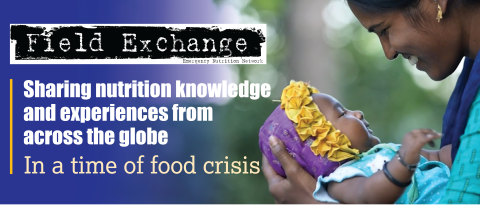Relaxation interventions for maternal and neonatal outcomes: A systematic review
This is a summary of the following paper: Abera M, Hanlon C, Daniel B et al (2022) Effect of relaxation interventions in pregnant women on maternal and neonatal outcomes: A systematic review and meta-analysis [preprint]. https://www.medrxiv.org/content/10.1101/2022.11.17.22282468v1
Maternal stress and disturbances to mental wellbeing are common occurrences during the perinatal period, with 15% to 25% of women experiencing high levels of anxiety or depressive symptoms during pregnancy. Maternal stress is associated with adverse pregnancy and birth outcomes yet, despite various interventions targeting different aetiologies, there has been no comprehensive review to synthesise evidence on the effectiveness of relaxation interventions1 on maternal and neonatal outcomes.
This systematic review considered five databases, following the Preferred Reporting Items for Systematic Review and Meta-Analysis (PRISMA) guidelines. Case reports, cross-sectional studies and editorial and/or opinion pieces were excluded. Eligible studies were randomised controlled trials or quasi-experimental studies on healthy pregnant women without additional pregnancy complications, which reported on the outcomes of interest specified in the search strategy – stress (self-reported, physiological and/or biochemical) or mental health/anxiety symptoms – and/or pregnancy outcomes. Unpublished work and grey literature were excluded, but a manual search was also completed to find additional studies from the reference lists of those identified.
A meta-analysis was conducted to obtain pooled estimates of effect (mean difference and standard deviation) for maternal depressive symptoms, maternal stress symptoms and birth weight. Where meta-analysis was not possible, where there was a small sample size for certain outcomes, a narrative synthesis was performed and reported.
Of the 19 studies that were included for systematic review, three were from India, with the remainder being from upper-middle-income or high-income countries. This made it difficult to extrapolate these findings to lower-income contexts, especially Africa, as no studies featured that continent. Most studies were deemed to have a low risk of selection bias, although it was unclear to what degree reporting bias affected these outcomes.
In general, relaxation interventions were found to be effective in reducing perceived stress and depressive symptoms during pregnancy. Mindfulness-based childbirth and parenting (a form of cognitive behavioural therapy), music therapy, progressive muscle relaxation, meditation, yoga and hypnosis were effective in reducing, to varying degrees, maternal depressive, stress and anxiety symptoms during pregnancy. There are several plausible biological mechanisms by which these interventions can promote maternal homeostasis and subsequent infant growth and development, but disentangling the direct and indirect effects of each is challenging.
The authors note that findings on obstetric and birth outcomes were inconclusive, but the initial evidence is promising. The meta-analysis may have been underpowered due to small sample sizes in trials, highlighting the need for further evidence generation to form more robust conclusions. Relaxation interventions are low-intensity, highly scalable in resource-poor settings and broadly without risk, indicating that this approach merits further research.
1 In this study, relaxation interventions were defined as any form of relaxation intervention, whether mind-based (tapes or music) or physical-based (massage, stretch or exercise), which were applied with the aim of promoting relaxation and reducing stress.


